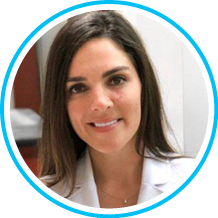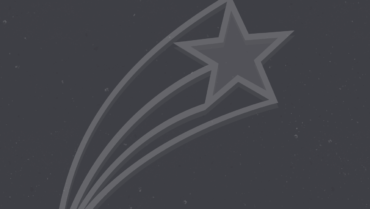supported by


Dr. Lozano is a glaucoma and cataract surgeon in private practice at Los Angeles Glaucoma Group.
PLEASE SHARE WITH US YOUR BACKGROUND.
I was born and raised in Chile by an American mom and a Chilean dad. At the age of 20, I decided to move to the United States to pursue my career in medicine. I relocated to Tampa, Florida, where I attended college and graduated with a bachelor’s degree in biomedical sciences. I then moved to Gainesville to pursue medical school, an internship, and ophthalmology residency at the University of Florida, #GoGators!
After living in Gator Nation for so long, I felt that it was time to spread my wings and leave Gainesville. Luckily, at an ophthalmology meeting, I met the then-current fellow of one of my all-time favorite ophthalmologists, Iqbal Ike K. Ahmed, MD, FRCSC. I told him that I wished I could become one of Dr. Ahmed’s fellows one day. The following year, I was moving to Canada to pursue the Glaucoma and Advanced Anterior Segment Surgery fellowship at the University of Toronto, arguably one of the world’s most renowned fellowships.
I am now based in Los Angeles, which is where I have aspired to be since I moved to the United States. I identify as a California girl (even though I am certainly not), sporting my wavy, beachy hair and walking around with my surfboard (and my gonioscopy lens, of course).
WHAT DREW YOU TO OPHTHALMOLOGY AND, SPECIFICALLY, TO YOUR FIELD OF INTEREST?
I was drawn to microsurgery. I started making jewelry at the age of 10, and the smaller the bead I had to thread, the better. When I began medical school, I knew that I wanted to be in a procedural field. During the early years of training, many medical students have no idea what eye surgeons do. Fortunately, I was able to participate in a short 2-week ophthalmology rotation during my second year and fell in love with eye surgery. I never looked back after that, and I am so glad that I didn’t.
As far as choosing my subspecialty, I never thought I would become a glaucoma specialist. I think that glaucoma chose me! My fellowship included training in both glaucoma and anterior segment surgery; although I initially pursued this opportunity for the latter, it didn’t take long for me to fall in love with glaucoma surgery and, most importantly, my glaucoma patients.
PLEASE DESCRIBE YOUR CURRENT POSITION.
I am an associate glaucoma and cataract surgeon in a private practice called Los Angeles Glaucoma Group. I just started this position a few months ago, and my schedule looks very different from how it looked when I was a fellow. Although my clinic schedule isn’t too busy these days, I have taken on several projects to grow our practice and become better known in the community. I completely redesigned our website, which is such an important part of any business today. I have also organized Zoom presentations for my colleagues and for members of the optometric community. As a new doctor in town, it is important for me to get to know the surgeons in the area, so I have been visiting their offices and introducing myself in person.
WHO ARE YOUR MENTORS?
There are too many to name, but my parents have played a big role in the development of my career. My mother and father are both very ambitious people who were able to grow on their own to become what they always aspired to be.
WHAT HAS BEEN THE MOST MEMORABLE EXPERIENCE OF YOUR CAREER THUS FAR?
Being accepted into Dr. Ahmed’s fellowship in Toronto, hands down. This opportunity opened so many doors for me, allowing me to find my job in Los Angeles and become involved with industry. It was also an amazing learning experience to live in a different country and witness how its health care system works. The freezing weather was a new adventure (a huge difference from Florida), but knowing that it was only going to be for a year, I embraced the cold and tried various fun winter activities such as snowboarding and ice skating.
WHAT ARE SOME NEW TECHNOLOGICAL ADVANCES THAT YOU HAVE FOUND PARTICULARLY EXCITING? WHICH ADVANCES IN THE PIPELINE ARE YOU MOST ENTHUSIASTIC OR CURIOUS ABOUT?
I am still obsessed with MIGS. I love explaining to my patients how MIGS now plays a big role in the surgical glaucoma space, and I tend to compare it with open-heart surgery versus laparoscopic heart surgery. Why open the conjunctiva and perform “open glaucoma surgery” when we can treat the disease “laparoscopically” with MIGS?
I am also enthusiastic about virtual reality technology for visual field testing. I have yet to meet one patient who enjoys the experience of visual field testing. Hopefully once virtual reality technology becomes more widely available, patients will be able to enjoy ophthalmic testing and feel encouraged to attend their glaucoma appointments.
WHAT IS THE FOCUS OF SOME OF YOUR RESEARCH?
There are plenty of opportunities at my private practice to be involved with research and to run clinical trials. I am currently involved in a bimatoprost intracameral implant (Durysta, Allergan) clinical trial, and I look forward to gathering my own surgical data and seeing my outcomes with different glaucoma procedures and techniques.
WHAT IS A TYPICAL DAY IN YOUR LIFE? WHAT KEEPS YOU BUSY, FULFILLED, AND PASSIONATE?
I currently live by the beach, and I like to wake up in the morning and go for a stroll outside. Knowing that I may not live here forever has made me want to take advantage of what I have right now. I also enjoy waking up early and being productive before I start my workday—usually by working out, reading magazines, catching up on emails, or eating a healthy breakfast. I feel fulfilled when I am able to balance my professional life with my personal life. I have many goals that I am trying to accomplish as a physician and surgeon, but I also have a long list of personal goals to achieve. I keep a to-do list for the different parts of my life, and I try to spend my days completing some tasks from each.
WHAT ADVICE CAN YOU OFFER TO INDIVIDUALS WHO ARE JUST NOW CHOOSING THEIR CAREER PATHS AFTER FINISHING RESIDENCY OR FELLOWSHIP?
Talk to people you trust. If you’re looking for a position and know where you would like to practice, find someone in the area whom you trust and ask for opportunities. I was in this situation last year, and I found it very hard to find jobs online or with headhunters. You don’t always know what you’re getting into when you take that route. I learned that the best way for me to find employment was by talking to people I know and asking for recommendations of practices in Los Angeles.
TELL US ABOUT AN INNOVATIVE PROCEDURE YOU ARE PERFORMING OR A NEW IMAGING/DIAGNOSTIC TOOL THAT HAS IMPROVED YOUR PRACTICE.
I think the Icare Home (Icare USA) is an invaluable tool for patients with glaucoma. We know that IOP fluctuates continuously, yet we typically only obtain measurements in the clinic between 8 am and 5 pm. As a result, we miss a lot of diagnostic information, especially with regard to nocturnal IOP spikes. The Icare Home is particularly helpful for determining when these changes occur.



